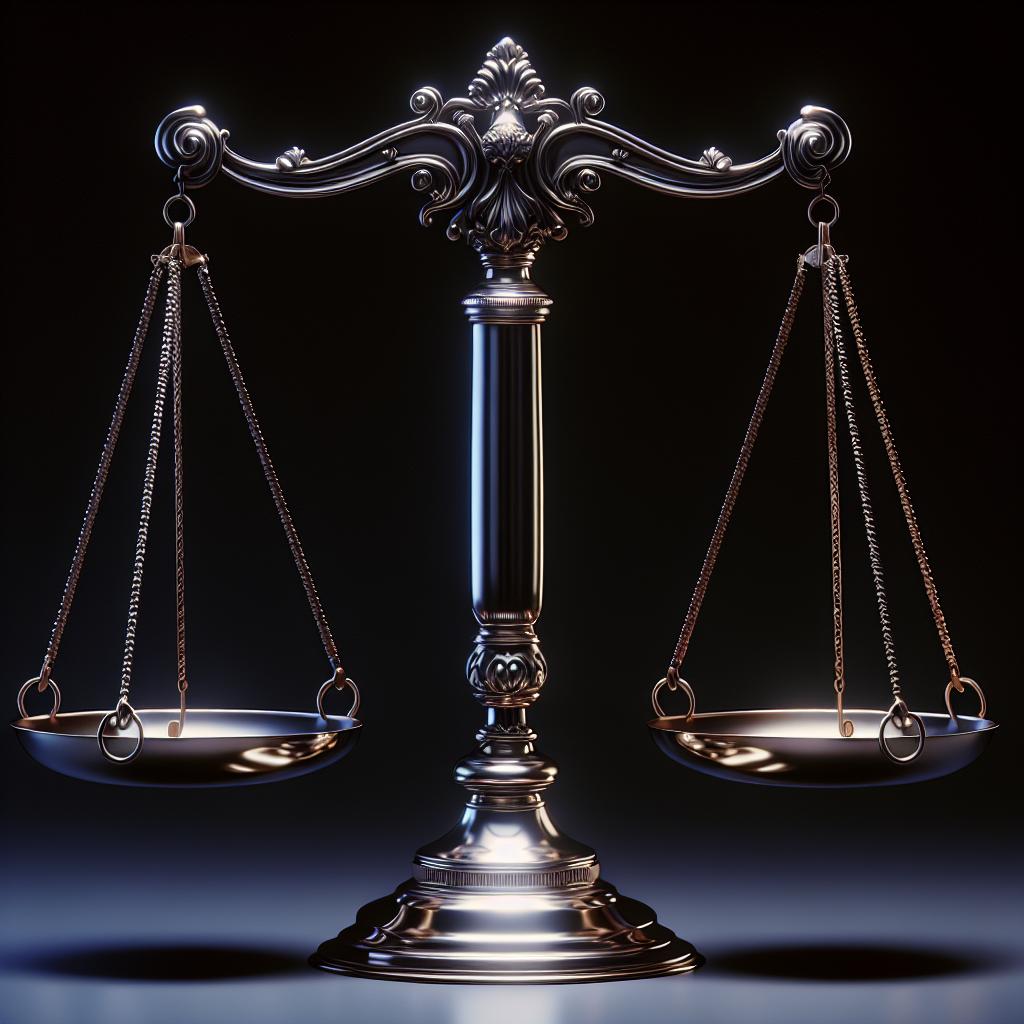

Judicial scales of justice
The Supreme Court is scheduled to make some major decisions this coming Monday, one of which involves the legality of former President Donald Trump’s claimed presidential immunity. Chief Justice John Roberts made the courtroom announcement on Friday, stating that four unresolved cases on the docket include Trump’s claims of exemption from prosecution.
This case arises from Trump’s previous attempts to dodge charges against him. Lower courts have ruled that he cannot claim immunity for actions that allegedly illicitly attempted to meddle with the election results. The former President, who is expected to be the Republican presidential nominee, is currently facing charges in a federal court in Washington for conspiring to overturn the results of the 2020 election.
Earlier in the month, Trump was found guilty in New York for 34 counts of fabricating business records. This conviction is linked to what prosecutors argue was an effort to obscure a hush money payment made to porn actor Stormy Daniels, immediately preceding the 2016 presidential election. This is just one of three criminal cases still ongoing against the former President.
During discussions held earlier this year, a majority of the justices did not seem predisposed to accept the claim of outright immunity, which would prevent special counsel Jack Smith’s prosecution of Trump on charges. However, several conservative justices hinted they might impose restrictions on when former presidents can be prosecuted, suggesting the possibility the case might be redirected to lower courts before a trial can commence.
Trump’s legal representative, D. John Sauer, contended that ex-presidents deserve absolute immunity for their actions while in office. This, he purports, would prevent routine politically-motivated cases against former Oval Office occupants, allowing presidents to perform their duties without the concern of criminal charges hanging over their heads. However, lower courts have uniformly dismissed these arguments.
Several justices focussed their inquiries on formulating a definition of “official act” and whether charges based on it should be scrapped. At one stage, Justice Elena Kagan questioned whether a former president should be exempt from prosecution even if they orchestrated a coup or divested nuclear secrets. In response, Sauer proposed that these might not be prosecutable offenses if classified as official acts.
Smith’s team suggested that the architects of the Constitution never designed the president’s role as being beyond the reach of the law, emphasizing that the acts Trump is charged with, including purportedly partaking in a scheme to enlist fraudulent electors in battleground states won by Democrat Joe Biden, are in no way correlated to the president’s constitutional duties. About four years ago, all nine justices rejected Trump’s claim of absolute immunity connected to a district attorney’s subpoena for his financial data.
There are several controversies related to this case, including the involvement of Justice Clarence Thomas, who has dismissed appeals to recuse himself from the case because of his wife’s public call for the 2020 electoral results to be overturned which was then succeeded by the Capitol riot she attended.
News Summary A tragic incident occurred in Saint Matthews, South Carolina, where Jordan Dove, a…
News Summary A tragic train collision in Columbia early Tuesday morning resulted in the death…
News Summary In Beaufort, South Carolina, 43 rhesus macaques escaped from the Alpha Genesis research…
News Summary A routine traffic stop in Greenville, SC turned alarming when Ahmad Alhendi made…
News Summary On March 28, 2025, the South Carolina Gamecocks triumphed over the Maryland Terrapins…
News Summary Raleigh, North Carolina has been recognized as the 'best-performing' large city in America…